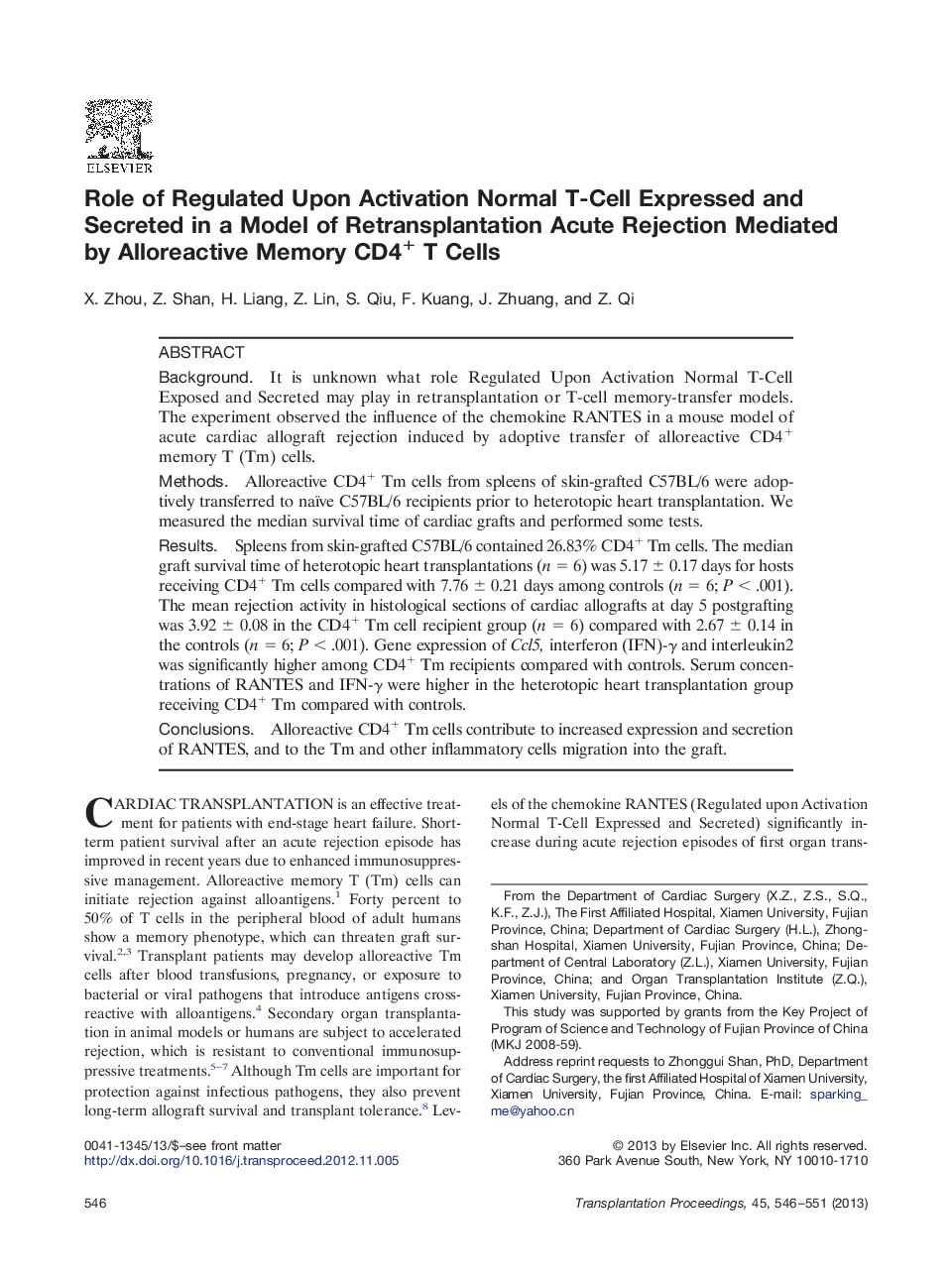| Article ID | Journal | Published Year | Pages | File Type |
|---|---|---|---|---|
| 4256138 | Transplantation Proceedings | 2013 | 6 Pages |
BackgroundIt is unknown what role Regulated Upon Activation Normal T-Cell Exposed and Secreted may play in retransplantation or T-cell memory-transfer models. The experiment observed the influence of the chemokine RANTES in a mouse model of acute cardiac allograft rejection induced by adoptive transfer of alloreactive CD4+ memory T (Tm) cells.MethodsAlloreactive CD4+ Tm cells from spleens of skin-grafted C57BL/6 were adoptively transferred to naïve C57BL/6 recipients prior to heterotopic heart transplantation. We measured the median survival time of cardiac grafts and performed some tests.ResultsSpleens from skin-grafted C57BL/6 contained 26.83% CD4+ Tm cells. The median graft survival time of heterotopic heart transplantations (n = 6) was 5.17 ± 0.17 days for hosts receiving CD4+ Tm cells compared with 7.76 ± 0.21 days among controls (n = 6; P < .001). The mean rejection activity in histological sections of cardiac allografts at day 5 postgrafting was 3.92 ± 0.08 in the CD4+ Tm cell recipient group (n = 6) compared with 2.67 ± 0.14 in the controls (n = 6; P < .001). Gene expression of Ccl5, interferon (IFN)-γ and interleukin2 was significantly higher among CD4+ Tm recipients compared with controls. Serum concentrations of RANTES and IFN-γ were higher in the heterotopic heart transplantation group receiving CD4+ Tm compared with controls.ConclusionsAlloreactive CD4+ Tm cells contribute to increased expression and secretion of RANTES, and to the Tm and other inflammatory cells migration into the graft.
